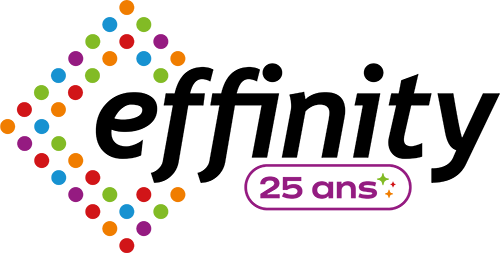A LeadGen agency
at your side
Lead generation is an essential driver of sales growth and business continuity. Our LeadGen agency mobilizes its experts to support you in this process, based on strong convictions.
Ensuring the quality of leads
One of the main challenges is to ensure the quality of the leads you generate. It’s not enough to have a large number of contacts; these leads must be qualified, i.e. relevant to your business, with a real identified need and a high conversion potential.
Control the cost of leads
Lead generation can be costly, especially if the strategies implemented are not optimized. Our LeadGen agency controls the acquisition cost of each lead to ensure that your investment in marketing campaigns remains profitable. The challenge is to maximize return on investment (ROI) while minimizing costs.
Apply best practices
In both B2C and B2B, the market is constantly evolving, with changes in consumer behavior, industry trends and technologies. Our LeadGen experts keep a constant watch on these developments, and are committed to deploying flexible, responsive LeadGen strategies that can adapt to these changes to stay competitive.
Be creative
Creative lead generation is essential to stand out from the competition and capture the attention of your target audience. Our lead generation experts can advise you on how to set up smart campaigns, through the offers proposed to incite action, the content, the segmentation of target audiences, the levers used, and so on.
4 steps to successful LeadGen campaigns
Why work with LeadGen?
Calling on our specialized lead generation agency (LeadGen) has many advantages if you’re looking to optimize your sales prospecting.
The main lead acquisition levers
Affiliation
Affiliation, remunerated on a cost-per-lead (CPL) basis, makes it possible to combine different levers to build a performance-based lead-gathering system: e-mailing, co-registration, comparators and emulators, making it possible to reach B2C or B2B audiences at various stages of their buying process.
Search Ads
Search Ads, through targeted ads on keywords that enable consumers to search for your brand or products, whether they know you or not. You’re present in the first results of search engines to capture more leads.
Social Ads
With Social Ads, LeadGen Effinity’s experts can help you collect your leads on social networks using a variety of devices: a landing page, a chatbot on Messenger that displays your form in the form of a conversation, a Facebook-integrated form, and so on.
Messaging
Effinity can help you set up lead-acquisition campaigns using SMS or RCS: from defining messages to selecting mailing bases. Our messages have an open rate of close to 98%, making them a highly effective channel for reaching your targets.
Telemarketing
Leads from telemarketing campaigns are highly qualified, since there has been a direct exchange with the prospect. Nox’s LeadGen experts work with a range of partners to access a variety of databases, depending on the objectives and target audiences, both B2C and B2B.
Native Ads
Effinity has an extensive network of premium partners in various sectors, enabling your native ads to be delivered on highly relevant, high-audience platforms. This increases the visibility of your campaigns and improves prospect targeting.
What is the definition of a lead?
A lead is a business contact identified as a potential opportunity for a company. It is usually a person or company who has shown some interest in the products or services offered, either through direct interaction (such as filling in a form on a website) or through a search for specific solutions.
In a B2B (business-to-business) context, a lead is often a professional or organization that corresponds to the advertiser’s target market, as well as to various criteria: company size, sector of activity or the contact’s role within the organization. A quality B2B lead is not only interested, but also has the decision-making power to move forward in the purchasing process.
Lead generation is a crucial stage in the sales cycle. Once identified, leads are generally qualified, i.e. evaluated to determine their relevance and potential for conversion into a customer. Qualification can be based on criteria such as identified need, budget and timing. Turning a lead into a customer requires careful follow-up, personalized interactions and close alignment between sales and marketing teams.
What’s the difference
between a lead and a prospect?
The difference between a lead and a prospect lies mainly in the degree of qualification and commitment to the sales process.
A lead is a sales contact who has shown an initial interest in your company’s products or services. This contact may have been obtained by various means, such as filling in a form, subscribing to a newsletter or taking part in a webinar. However, at this stage, the lead is still an unqualified contact. It’s not yet certain whether this lead has an immediate need, a budget or the decision-making power to make a purchase.
A prospect, on the other hand, is a lead that has been qualified. This means that you have assessed and determined that this contact is interested in your offer, has an identified need, has a budget and is actively looking for a solution. A prospect is therefore a lead who is further along in the sales process and has a higher conversion potential.
So, all prospects are leads, but not all leads become prospects. The transition from lead to prospect marks an essential step towards closing a sale.
Discover how our other expertise can accelerate your growth
